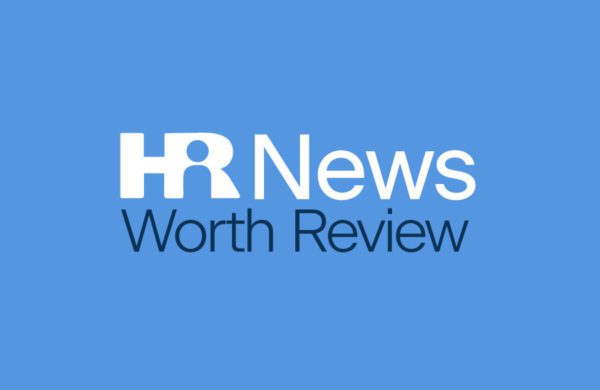Technology has transformed many of the traditional elements of human resource practices, but none more so than the processes required for effective recruiting, including job posting, searching, screening, interviewing, candidate selection and new hire onboarding.
In this article, we will review the latest advancements in recruiting and how these innovations are revolutionizing the business of talent acquisition, adding new tools to help organizations make the right hiring decisions while streamlining the recruitment process and enhancing overall efficiency.
Avoiding the High Cost of Bad Hires
In a recent survey by CareerBuilder, 75 percent of respondents said that they had hired the wrong person for an important position. By the time a company can determine that a new hire can’t produce acceptable work, has a negative attitude, can’t work with others, has attendance problems or misled the recruiter about their skills, the damage is already done. The reported average cost of a bad hire was $18,700.
The best strategy for avoiding the cost and disruption of a bad hire is straightforward: HR must do everything possible during the recruitment process to avoid making a bad hire in the first place. Below are some of the ways in which HR technology can help support that strategy.
Sourcing Candidates
The initial stage of recruitment once involved manual job postings, followed by reading through voluminous (and sometimes irrelevant) resumes and applications. The current mix of new and traditional methods of candidate sourcing can still be overwhelming, making it challenging to identify the right talent efficiently. Fortunately, HR technology has introduced HR teams to a wide range of innovative new solutions for sourcing candidates.
HR Artificial Intelligence (AI): Resume Screening
AI-driven resume screening tools have significantly transformed the recruitment process. These tools can use machine learning algorithms to analyze resumes and identify candidates that closely match the job requirements. By automating the initial screening phase, HR professionals can significantly reduce the time spent on resume reviews and focus their time on deeper screening of the most qualified candidates.
Candidate Relationship Management (CRM) Systems
CRM systems tailored for recruitment purposes help businesses build and manage relationships with potential candidates. These systems enable HR professionals to maintain a talent pool, engage with candidates over time and keep track of their skills, education and experience. This proactive approach to human capital management can help ensure that when a key position opens, the organization can quickly tap into its network of potential hires.
Applicant Tracking Systems (ATS)
Once suitable candidates have been identified, the next challenge is managing the recruitment workflow efficiently. Recruitment software programs known as Applicant Tracking Systems (ATS) have become an integral part of HR technology, offering a centralized platform to organize the hiring process, track candidate progress and view recruitment metrics.
Automated Job Postings
ATS platforms can allow HR teams to seamlessly create and post job openings across multiple channels. The ability to automate job postings not only reduces the time to hire but also helps ensure that job listings are consistent across various platforms, enhancing the brand voice and image.
Customizable Workflows
Modern ATS solutions can provide customizable workflows that align with the organization’s specific recruitment process. From application submission to interview scheduling, these systems can help HR professionals design workflows that suit their unique needs, promoting a standardized and efficient hiring process with emphasis on the stages that are most important to the business.
Video Interviewing and Assessment Tools
The traditional face-to-face interview is evolving thanks to video interviewing and personality assessment tools. These technologies can not only overcome geographical barriers but also add a layer of convenience and efficiency to the interview process.
Asynchronous Video Interviews
Asynchronous video interviews allow candidates to record their responses to pre-set questions at a time that’s convenient for them. This flexibility is particularly beneficial for global recruitment efforts since it can better accommodate different time zones. HR professionals can then review the video responses at their convenience.
AI-powered Interview Analysis
AI-driven tools can analyze video interviews to assess not only what candidates say but also their non-verbal cues and expressions. This can provide a more comprehensive understanding of a candidate’s suitability for a role. These tools can also identify patterns and traits that might be overlooked in traditional interviews, contributing to more informed hiring decisions.
Integration with Collaboration Tools
Collaboration is key in the recruitment process, as it involves multiple stakeholders that can range from hiring managers and potential team members to external recruiters and internal HR teams. HR technology has evolved to facilitate seamless communication through the integration of many recruitment software programs with popular collaboration tools like GitHub and Canva.
Integration with Messaging Platforms
HR technology now allows for integration with popular messaging platforms, such as Slack or Microsoft Teams. This helps ensure that communications related to the recruitment process are centralized and easily accessible to all relevant parties. Quick communication helps avoid delays and expedite decision-making.
Live Collaboration on Candidate Feedback
Collaboration tools integrated with HR technology enable real-time feedback and collaboration on candidate evaluations. This feature is particularly valuable when multiple team members are involved in the interview process, as it helps to create a more holistic and timely assessment of candidates.
Predictive Analytics for Decision Support
Predictive analytics has gained prominence in HR technology, offering valuable insights into the recruitment process. By leveraging historical data and recruitment metrics, these tools can help HR professionals make informed decisions and predictions about future hiring needs.
Candidate Success Prediction
Some HR technology solutions utilize predictive analytics to assess the likelihood of a candidate’s success in a given role. By analyzing various performance management factors such as skills, experience and cultural fit, these tools can provide valuable insights that can guide hiring decisions and reduce the risk of mismatched placements.
Enhanced Candidate Experience
A positive candidate experience is crucial for attracting and retaining top talent. HR technology has introduced several features and tools aimed at enhancing the overall candidate experience throughout the recruitment journey.
Chatbot HR Technology for Instant Support
Chatbots integrated into recruitment websites or platforms offer instant support to candidates, addressing queries, providing information and guiding them through the application process. Automated assistance with timely and relevant communications can enhance the candidate experience and reflect positively on the organization.
Mobile Recruitment Apps
Mobile recruitment apps provide candidates with the flexibility to browse job opportunities, submit applications and even participate in video interviews using their smartphones. More mobile-centric HR technology closely aligns with the preferences of modern job seekers, helping to contribute to a more positive and accessible candidate experience.
The Future of Recruitment
HR technology continues to transform the recruitment processes. The latest advancements in AI, ATS, video interviewing, collaboration tools and predictive analytics have altered the future direction of talent acquisition and recruitment strategies. Businesses and human resources professionals that embrace this enhanced role of HR technology stand to gain a competitive edge by optimizing their hiring processes, attracting top talent, avoiding bad hires and making data-driven decisions that help contribute to the organization’s success.
As the landscape of recruitment continues to evolve with technological advancements, navigating the myriad of tools and strategies can be a daunting task. If you need assistance in optimizing your hiring processes, attracting top talent and creating a positive candidate experience, Higginbotham’s HR Services team is here to help. Get in touch with a member of our team and let’s harness the power of HR technology to help move your organization forward.






